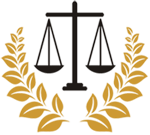Need a Personal Injury Lawyer?
Search Our Site
All Legal Articles
Read Related Legal Articles
Can I Sue the Other Driver After a Car Accident?
The answer to any lawsuit question is generally "Yes." However, deciding whether or not you should sue is another matter. In a standard car accident, insurance companies handle the majority of issues – car repairs, a rental vehicle, reimbursement for medical expenses. But insurance companies are just that: companies. They have a bottom line to protect just like every other company, and they don't do it by blindly distributing checks to car accident victims. If your accident resulted in large losses, such as high medical bills, lost income, or a totaled car, you likely need to sue in order to recoup those monies. Additionally, if both you and the driver who hit you have the same insurance company, the chances you'll be lowballed in your settlement just doubled.
What are Driver Duties?
Laws vary by state, but there are basic duties every driver has. Failure to comply typically results in the driver being found at fault should an accident occur. Drivers are expected to, at a minimum:
- Drive at a reasonable speed. This includes not only following the posted speed limit but also maintaining reasonable speed based on conditions such as heavy traffic, inclement weather, and low visibility.
- Keep the vehicle under control. Negligence is implied if the driver loses control of the vehicle, such as a rollover, with no obvious cause for said loss of control.
- Maintain their vehicle and keep it in proper working order. This includes functioning brake lights and good brakes.
- Stay alert to dangers on the roadway. This means maintaining a lookout for other drivers, pedestrians, and potentially dangerous situations such as school zones and road construction. Additionally, maintain a "buffer" between you and other drivers, to allow ample stopping distance.
- Maintain their lane, follow right-of-way rules, and drive on the right side of the road.
Proving Negligence in a Car Accident Case
Negligence is the most common argument used in car accident suits. In this case, "negligence" is the legal term indicating the other driver behaved in a thoughtless or reckless manner which caused harm to another person or their property. A driver is deemed negligent for either failing to do something, such as stop at a red light, or for doing something, such as speeding. A driver who fails to follow any of the minimum driver duties listed above is typically deemed to be negligent, and therefore at fault for the accident.
How Do I Prove Fault in a Car Accident Case?
There are a number of ways you can prove fault after an auto accident. To begin with, if the police were called to the scene of your accident, contact the traffic division of the responding agency to request a copy of the police report. Likely, this report lists the officer's belief of what caused the accident and whether a citation was issued against the other driver. It should also mention any traffic law violations.
Certain types of accidents nearly always assign fault automatically. Top on this list is rear-end collisions, which have a near 100 percent guarantee of faulting the other driver. This is because, if the driver followed the duties related to proper speed and distance between vehicles, he or she would not have rear-ended you. There are instances, though, when the person being rear-ended assumes responsibility, chief among them non-functioning brake or taillights.
Accidents taking place when one driver is making a left-hand turn also fall under this category, with the turning driver typically found at fault. Unless the car traveling straight was speeding or running a red light, he or she is rarely found at fault.
How Do I Preserve the Evidence in a Car Accident?
If you weren't severely injured, take steps as soon as you can to document evidence from your accident. Take photos at the time of the accident, of both your vehicle and the other driver's, as well as of the area. Use a variety of angles to take these photographs. You should also return to the scene afterward to make sure you didn't miss anything. Look for witnesses and journal everything you can remember, while it's still fresh in your mind.
Contact a Personal Injury Lawyer
If your accident includes complicated factors, severe injuries, or high damages, contact a personal injury lawyer for a free consultation. He or she can advise you on the merits of your suit.
